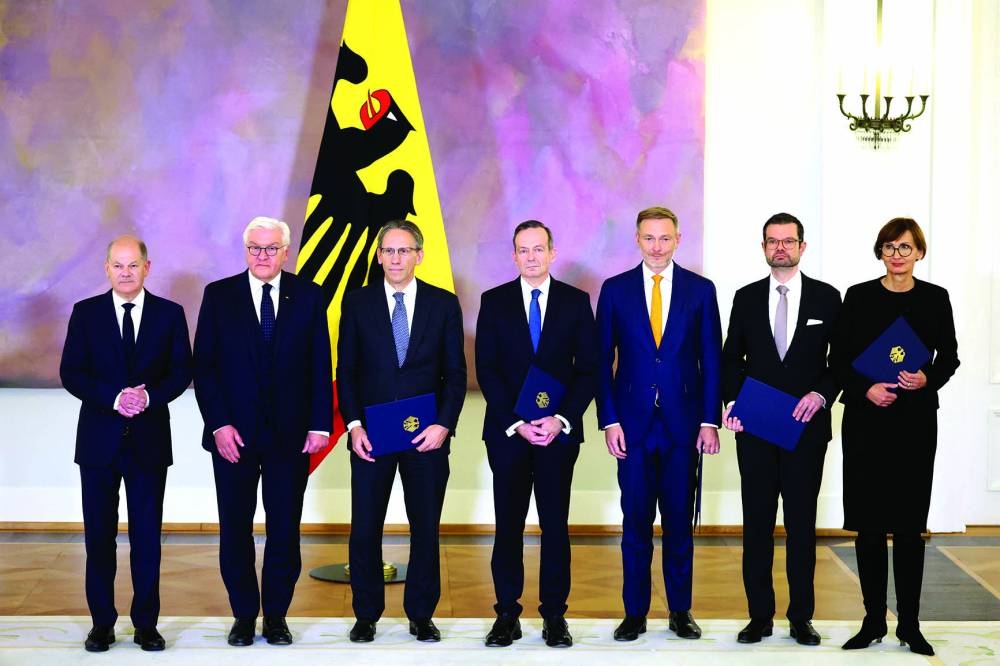German opposition parties and business groups yesterday urged Chancellor Olaf Scholz to trigger a new election quickly to minimise political uncertainty after his rocky three-way coalition collapsed.
The coalition fell apart on Wednesday when years of tensions culminated in a row over how to plug a multi-billion-euro hole in the budget and revive Europe’s largest economy, headed for its second year of contraction.
The break-up creates a leadership vacuum at the heart of the European Union just as it seeks a united response to Tuesday’s election of Donald Trump as US president on issues ranging from possible new US trade tariffs to Russia’s war in Ukraine and the future of the US-led Nato alliance. The chancellor said he would hold a confidence vote in January, which he would probably lose, triggering a new election by the end of March – six months ahead of schedule. Friedrich Merz, leader of the opposition conservatives, who are leading in nationwide polls, called for a vote of confidence “by the beginning of next week at the latest”, in comments echoed by other opposition parties.
An election could take place in late January, he said. “We simply cannot afford to have a government without a majority in Germany for several months now, followed by an election campaign for several more months and then possibly several weeks of coalition negotiations,” Merz told reporters. German industry, reeling from high costs and fierce Asian competition, also urged Scholz’s government yesterday to arrange an election as soon as possible.
The uncertainty caused German borrowing costs to jump, with the benchmark 10-year yield rising as much as 10 basis points to its highest since July. A key market gauge that signals debt risk as it falls dropped to its lowest on record. Scholz delayed his departure for Thursday’s European Union summit in Budapest due to the crisis at home and cancelled his attendance at the next United Nations climate change summit.
Scholz, of the centre-left Social Democrats (SPD), said he had fired his finance minister, Christian Lindner of the fiscally conservative Free Democrats (FDP), for obstructing a resolution of budget disputes.
The last straw was his opposition to Scholz’s plan to ease debt limits in order to increase support for Ukraine in the 2025 budget by €3bn ($3.25bn).

German Chancellor Olaf Scholz, President Frank-Walter Steinmeier, newly appointed Finance Minister Joerg Kukies, Transport Minister Volker Wissing, outgoing Finance Minister Christian Lindner, outgoing German Justice Minister Marco Buschmann, and outgoing Education Minister Bettina Stark-Watzinger stand in Bellevue Palace on the day Kukies receives certificate of appointment and the outgoing ministers receive certificate of dismissal, in Berlin, yesterday. (Reuters)
